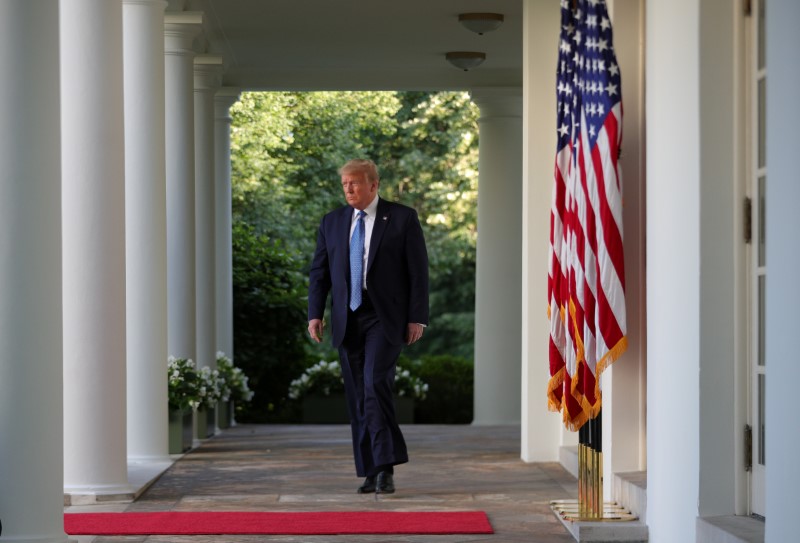WASHINGTON (Reuters) – U.S. President Donald Trump on Thursday signed an executive order that gives federal agencies emergency powers to fast-track major energy and other infrastructure projects by overriding environmental permitting requirements.
The White House said the order was a way to help the economy rebound from the impact of the coronavirus pandemic and improve infrastructure.
It calls for public works and highway projects as well as energy projects like pipelines and terminals to be expedited. It instructs the Interior, Agriculture and Defense Departments to accelerate projects on federal lands.
Trump has been a vocal advocate of fossil fuels as president and has sought to roll back regulations slowing their development and reduce state powers to block projects for environmental reasons.
Earlier this year, the Trump administration proposed to streamline the National Environmental Policy Act (NEPA), a bedrock environmental regulation that creates time consuming environmental reviews and public feedback requirements for major infrastructure projects.
The proposal is going through a public comment and review period.
Critics said Trump’s order comes at the expense of African American and other minorities who tend to live in communities directly affected by major energy infrastructure.
“Gutting NEPA takes away one of the few tools communities of color have to protect themselves and make their voices heard on federal decisions impacting them,” said Democratic Congressman Raul Grijalva, chair of the House natural resources committee.
Christy Goldfuss, a senior vice president at the Center for American Progress said letting agencies “ram through” fossil fuel projects will harm “the very same communities that are dying at higher rates from COVID-19 and police violence.”
In March, the Environmental Protection Agency cited the coronavirus when it announced a policy to ease compliance and monitoring for industrial facilities and power plants.
Industry groups praised Trump’s order. The National Mining Association said it will “support increased use of the vast domestic mineral reserves we have right here at home.”
(Reporting by Valerie Volcovici and Alexandra Alper; Editing by Marguerita Choy and Grant McCool)






















